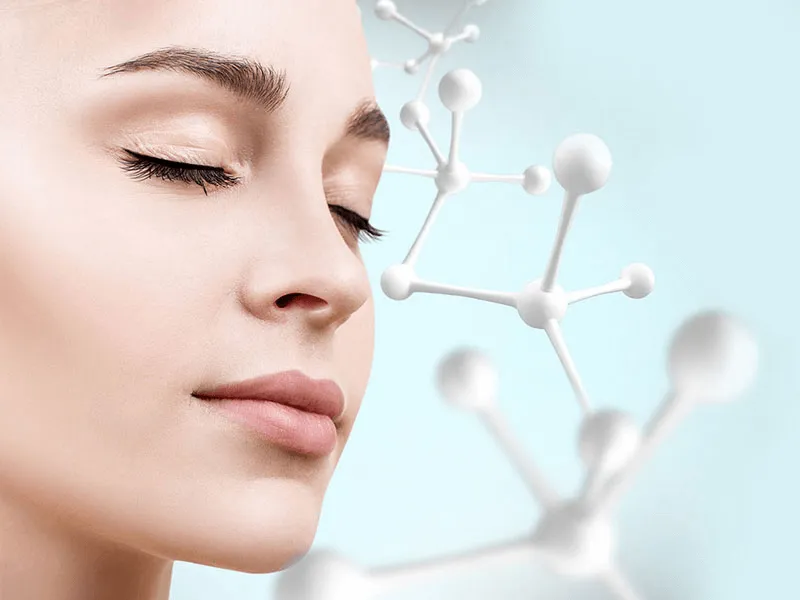In today’s fast-paced world, skin wellness has become a major priority for many people. Dermatology, the branch of medicine focused on skin, hair, and nails, plays a crucial role in enhancing both the health and appearance of our skin. Whether you’re dealing with acne, eczema, or just seeking to maintain youthful skin, understanding dermatology and how to navigate its wide array of treatments can be a game-changer. This article dives into the various aspects of Dermatology(طب الأمراض الجلدية), providing you with helpful insights to better understand skin wellness.
Page Contents
What is Dermatology?
Dermatology is a specialized medical field that deals with diagnosing and treating skin conditions. It also encompasses the study of the underlying causes of these conditions, such as genetic factors, environmental influences, and immune system responses. Dermatologists are experts in skin care, and their role extends from treating acute skin conditions to providing preventive care and recommending skin wellness practices.
For people looking to improve their skin’s health or address specific skin concerns, visiting a dermatologist can make a significant difference. From the latest advancements in skincare treatments to specialized therapies, dermatology provides options to help individuals achieve healthier skin at any stage of life.
Types of Skin Conditions Treated in Dermatology:
Dermatologists are skilled in diagnosing and managing a wide range of skin conditions. These can be classified into various categories:
Acne:
Acne is one of the most common skin conditions, especially among teenagers and young adults. It involves the inflammation of hair follicles and sebaceous glands, often causing pimples, blackheads, or cysts. Dermatologists offer a variety of treatments, including topical medications, oral medications, and light therapy to reduce breakouts.
Eczema and Psoriasis:
Eczema and psoriasis are chronic conditions that cause skin irritation, dryness, and itching. While eczema is often triggered by allergens or environmental factors, psoriasis is an autoimmune disorder where skin cells multiply too quickly. Dermatologists use a range of therapies, including corticosteroids, moisturizers, and biologic drugs to help manage these conditions.
Skin Cancer:
Skin cancer is a critical area of focus within dermatology. The three most common types are basal cell carcinoma, squamous cell carcinoma, and melanoma. Dermatologists use skin exams, biopsies, and advanced imaging techniques to detect skin cancer early, increasing the chances of successful treatment.
Hyperpigmentation and Age Spots:
Conditions like melasma, sunspots, and other forms of hyperpigmentation can make the skin appear uneven in tone. Dermatology treatments, such as chemical peels, laser therapy, and topical bleaching agents, can help address these issues and create a more even complexion.
Hair Loss and Scalp Disorders:
Hair thinning or hair loss can be emotionally distressing. Dermatologists can assess the underlying causes of hair loss, including genetics, hormonal imbalances, or skin conditions like alopecia areata. Treatment options may involve medications, injections, or lifestyle adjustments to promote healthier hair growth.
Rosacea:
Rosacea is a chronic condition that causes redness and visible blood vessels on the face, often accompanied by pimples. Although there’s no cure, a dermatologist can offer treatments to control symptoms and flare-ups, including topical creams, oral antibiotics, and laser therapy.

Treatments Available in Dermatology:
Dermatology offers various treatments designed to improve skin health, ranging from topical medications to more advanced procedures. Here are some of the most popular options:
Topical Medications:
Topical treatments are the first line of defense for many common skin issues. These can include corticosteroid creams for inflammation, retinoids for acne and anti-aging, and antifungal creams for infections. These treatments are applied directly to the skin for localized effects.
Oral Medications:
For more severe conditions, oral medications are often prescribed. Oral antibiotics may be used for acne or rosacea, while oral antifungals can treat fungal infections. In some cases, dermatologists may prescribe immunosuppressive drugs for autoimmune conditions like psoriasis.
Laser Therapy:
Laser treatments have revolutionized dermatology, allowing for targeted skin care. Lasers can be used to treat scars, pigmentation issues, sun damage, and even wrinkles. Common laser procedures include fractional CO2 lasers, intense pulsed light (IPL) therapy, and laser resurfacing.
Chemical Peels:
Chemical peels involve applying a chemical solution to the skin, which exfoliates the outer layer to reveal fresher, smoother skin underneath. They can treat acne scars, fine lines, and uneven pigmentation.
Cryotherapy:
Cryotherapy involves freezing abnormal tissue, often used to remove warts, precancerous skin lesions, and benign growths. It’s a quick, minimally invasive procedure with minimal recovery time.
Microneedling:
Microneedling uses tiny needles to create controlled micro-injuries in the skin, stimulating collagen production. It’s an effective treatment for reducing the appearance of scars, fine lines, and uneven skin texture.
Preventive Care for Skin Wellness:
A key aspect of dermatology is preventive care. Dermatologists emphasize the importance of daily sun protection, as UV radiation is a leading cause of premature aging and skin cancer. They often recommend broad-spectrum sunscreen with an SPF of 30 or higher and may also suggest wearing hats or seeking shade during peak sun hours.
Additionally, routine skin checks are crucial for early detection of skin conditions. Regular visits to a dermatologist can help detect problems like suspicious moles or early-stage skin cancers, ensuring that treatment is provided before conditions worsen.
The Importance of a Dermatologist in Skin Wellness:
While over-the-counter products and at-home remedies can provide some benefits, nothing compares to the expertise of a trained dermatologist. Dermatologists not only offer medical treatments but also educate patients about proper skincare routines, lifestyle changes, and nutrition that can significantly enhance skin health.
Seeing a dermatologist regularly helps identify skin issues early, provides access to specialized treatments, and ensures that your skin stays healthy throughout your life. Whether you’re struggling with a skin condition or simply want to keep your skin glowing and youthful, dermatologists are your best allies in the journey to better skin wellness.
FAQs About Dermatology and Skin Wellness:
What should I expect during my first dermatology appointment?
Your first visit will likely involve a comprehensive skin exam. The Dermatologist(طبيب امراض جلدية) will ask about your medical history, skin concerns, and any current treatments you’re using. Depending on your condition, they may suggest tests or treatments on the spot.
How can I prevent acne breakouts?
Prevention strategies include using gentle skincare products, avoiding harsh scrubbing, and incorporating acne-fighting ingredients like salicylic acid or benzoyl peroxide into your routine. It’s also important to keep your hands off your face and manage stress.
Can dermatology treatments improve skin aging signs?
Yes! Dermatologists can help address signs of aging through treatments like Botox, dermal fillers, chemical peels, and laser therapy. These treatments target fine lines, wrinkles, and sun damage to restore a youthful appearance.
Is it necessary to wear sunscreen every day?
Absolutely! Daily sun protection is one of the most important steps in maintaining healthy skin and preventing premature aging and skin cancer. Even on cloudy days or in winter, harmful UV rays can still damage your skin.
What is the best skincare routine for sensitive skin?
For sensitive skin, opt for fragrance-free and hypoallergenic products. Look for gentle cleansers, moisturizers, and sunscreens that don’t irritate or cause reactions. A dermatologist can recommend a tailored skincare regimen based on your skin type.
Can dermatology help with hair loss?
Yes, dermatologists can assess the underlying causes of hair loss, whether it’s due to genetics, hormonal changes, or scalp conditions. Treatments may include medications, lifestyle adjustments, or in some cases, hair restoration procedures.
Conclusion:
Navigating the world of dermatology is key to achieving and maintaining optimal skin wellness. Whether you’re dealing with specific skin conditions, looking to rejuvenate your skin, or simply seeking preventive care, dermatologists provide essential knowledge and treatments to help you achieve healthy, glowing skin. Don’t hesitate to seek professional advice when needed—your skin will thank you!




